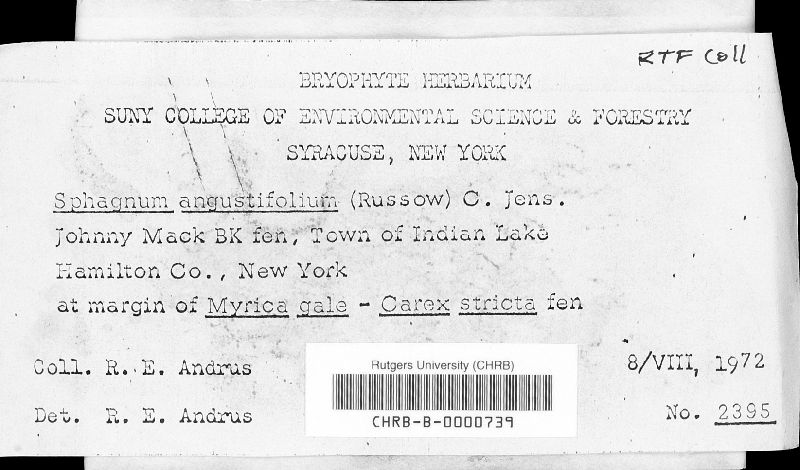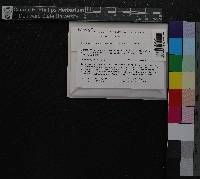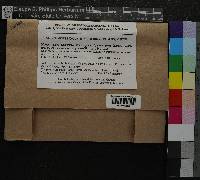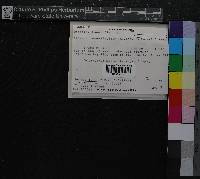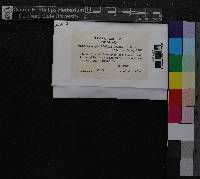Sphagnum angustifolium
|
|
|
|
Family: Sphagnaceae
|
Plants small and often slender and soft, lax to compact, moderately stiff-stemmed; green to pale yellow to golden brown to brown; capitulum strongly convex in drier grown forms to strongly 5-radiate and flat in wetter growing forms. Stems pale green to pale brown, often with pinkish red patches, cortex undifferentiated. Stem leaves equilateral to isosceles-triangular, small, less than 0.8 mm, mostly appressed to stem, apex acute to obtuse, hyaline cells efibrillose and nonseptate. Branches straight to slightly curved, usually 5-ranked; leaves not much longer at distal end than proximal end. Branch fascicles with 2 spreading and 2-3 pendent branches. Branch stems with cortex enlarged with conspicuous retort cells, often pinkish red at proximal end. Branch leaves narrowly ovate-lanceolate, 0.8-1 mm, straight, moderately undulate and recurved in larger and/or wetter grown forms, not undulate and slightly recurved in compact forms from drier sites; margins entire; hyaline cells on convex surface with 1(2-3) pore per cell at apical end of cell, on concave surface with round wall thinnings in cell ends and angles; chlorophyllous cells triangular in transverse section and just enclosed on concave surface. Sexual condition dioicous. Spores 21-25 µm; coarsely papillose on proximal and distal surfaces; proximal laesura more than 0.5 spore radius. Wide range of habitats, from ombrotrophic to rich fens, open mires, sedge fens and muskeg, as carpets, floating mats, low hummocks and hummock sides; low to high elevations; Greenland; Alta., B.C., Man., N.B., Nfld. and Labr. (Nfld.), N.W.T., N.S., Ont., Que., Sask., Yukon; Alaska, Calif., Colo., Idaho, Ill., Ind., Maine, Md., Mass., Mich., Minn., Mo., Mont., N.H., N.J., N.Y., N.C., N.Dak., Ohio, Oreg., Pa., Utah, Vt., Va., Wash., W.Va., Wis., Wyo.; Eurasia. The sporophytes of Sphagnum angustifolium are somewhat common. This species is distinguished from similar ones in sect. Cuspidata by the small, triangular, obtuse and appressed stem leaves. It also often has a pink stem, as opposed to the reddish branch bases seen in some other species of the section. Sphagnum balticum has stem leaves that are more lingulate-triangular as well as spreading from the stem. Sphagnum angustifolium belongs to a subgroup within sect. Cuspidata usually referred to as S. recurvum, in the broad sense, a group of mostly carpet-forming species that differ from other members of the section in having pairs of pendent branch buds visible between the capitulum rays. The group also includes S. brevifolium, S. fallax, S. flexuosum, S. pacificum, S. recurvum, S. rubroflexuosum, and S. splendens.
|

